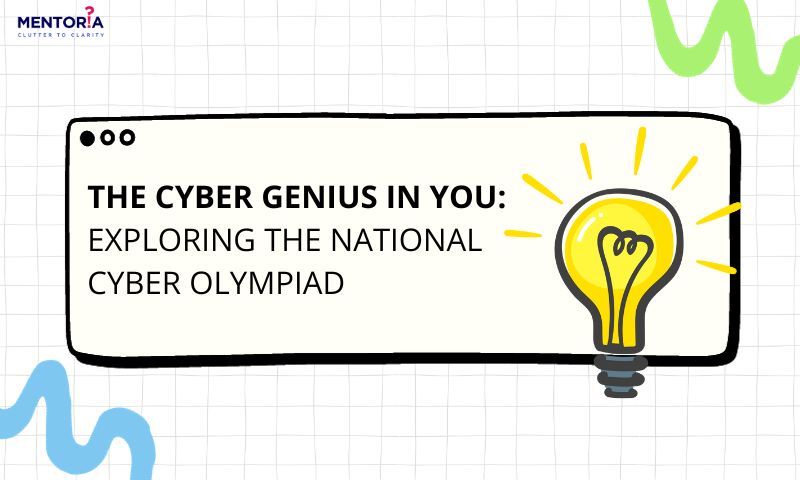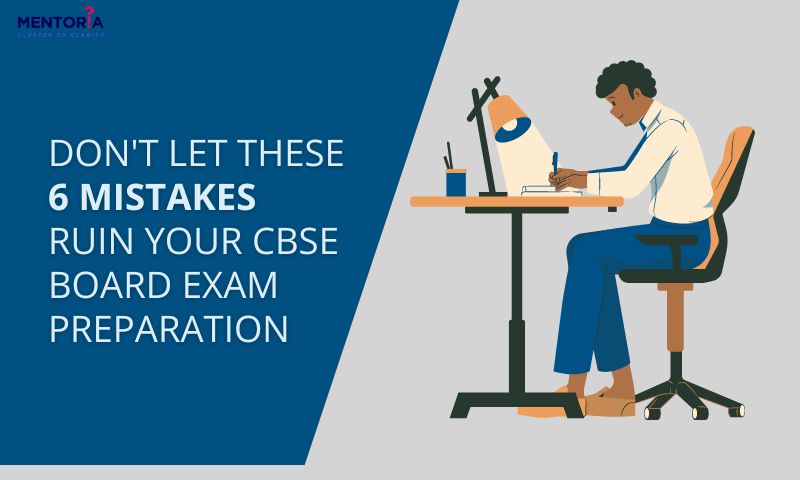The Cyber Genius In You: Exploring The National Cyber Olympiad

Welcome to the realm of cyber brilliance – the National Cyber Olympiad (NCO)! If you’re someone who enjoys exploring the landscape of computers, the internet, and everything in between, this blog is for you. In the National Cyber Olympiad, you get to showcase your knowledge and problem-solving abilities in cybersecurity. You can put your digital skills to the test and discover just how much you know about keeping the virtual world safe and sound. Think of NCO as the ultimate test for your IT smarts, cyber concepts, and computer wizardry. In a country buzzing with IT career vibes, students are swarming to get in on the NCO action. So in this blog, we’ll tell you all you need to know about NCO- from its registration process, syllabus and exam format.
The Gateway To Cyber Brilliance
Hosted by the Indian Institute of Technology Kanpur’s Department of Computer Science, this annual event has been a brainy battleground since 2009, challenging participants from all walks of academia. NCO is a great opportunity to discover your strengths and weaknesses, paving the way for academic excellence.
NCO is a gateway to self-discovery. Since its inception in 2009, the National Cyber Olympiad (NCO) has been more than a competition; it’s a brainy battleground hosted by the Indian Institute of Technology Kanpur’s Department of Computer Science. It’s a platform that transcends academic boundaries, challenging participants from various disciplines to explore their abilities.
Who Can Join The Cyber Party?
Whether you’re a whiz-kid in Grade 1 or a seasoned student in Grade 10, NCO calls upon you. Unlike traditional exams, this isn’t just about your school scores; it’s a chance for everyone, regardless of their academic history, to shine. The exam, slated for 24th November and 20th December, is open to all, transcending the boundaries of conventional evaluations.
Regardless of your academic background, NCO welcomes all aspiring cyber enthusiasts from Grade 1 to Grade 10. It’s a departure from traditional exams, offering an inclusive platform for students to showcase their abilities. According to recent statistics, there has been a staggering 30% increase in students aspiring for careers in Information Technology (IT) in the past five years. This surge is attributed to the growing importance of IT in various industries, making the National Cyber Olympiad (NCO) an essential stepping stone for young minds venturing into this dynamic field. Forget about your school scores; this is an opportunity for everyone to shine. Mark your calendar for the exam dates on 24th November and 20th December; it’s time to break free from conventional evaluation norms.
Eligibility Criteria
Now, let’s talk business. To embark on this cyber adventure, you need to meet a few criteria. Your school must be recognised by the Science Olympiad Foundation (SOF), and you should be enrolled from Grade 1 to Grade 10. In the last academic year, NCO witnessed an impressive 50% growth in the number of participants nationwide. Thirty days before the test, ensure you’ve filled out the application form and submitted it with the necessary fees. It’s your chance to prove your mettle in mental aptitude, logical reasoning, and analytical reasoning.
Embarking on the quest for cyber glory requires meeting eligibility criteria. Your school’s recognition by the Science Olympiad Foundation (SOF) is crucial, and participants must be enrolled in Grades 1 to 10. Thirty days prior to the test, meticulous completion of the application form, accompanied by the required fees, is essential.
Registration: Your Ticket To The Cyber Arena
Want to be part of this cyber extravaganza?
- Gather at least nine other cyber enthusiasts from your school, and you’re in!
- Register on the official SOF website, where a nominal fee of INR 125 awaits.
- If you’ve faced adversities like a severe physical disability or a parent’s sacrifice in a defence action, your entry is on the house.
- Plus, your school might throw in an additional INR 25 as a nod to your teacher’s commendable effort in preparing you for the showdown.
Decoding The Cyber Challenge: NCO Exam Pattern
Now, let’s get into the nitty-gritty of the competition.
- Section I delves into patterns, series, and classifications for Grades 1 to 5.
- Grades 6 to 10 face both verbal and non-verbal thinking tasks.
- Section II takes you on a journey through computers, information technology, and technological advancements.
- Brace yourself for Section III, where high-order thinking questions await, gradually increasing in difficulty across all classes.
- The NCO syllabus maintains an impressive 80% consistency with emerging IT trends.
What To Expect: NCO Syllabus
Curious about what you’ll be tackling? The syllabus is your map. Computer and IT Basics:
Introduction to Computers:
- Understanding the history and evolution of computers.
- Types of computers (mainframes, personal computers, laptops, tablets, etc.).
Computer Hardware and Software:
- Identifying and understanding various hardware components (CPU, RAM, hard drive, etc.).
- Differentiating between system software and application software.
Input and Output Devices:
- Recognising devices used to input data (keyboard, mouse, etc.).
- Understanding output devices (monitor, printer, etc.).
Storage Devices:
- Types of storage devices (hard disks, USB drives, memory cards, etc.).
- Understanding data storage capacities.
- Software and Applications:
Operating Systems:
- Basics of operating systems (Windows, macOS, Linux, etc.).
- Functions of operating systems.
Word Processing:
- Using word processing software (Microsoft Word, Google Docs, etc.).
- Formatting text, paragraphs, and documents.
Spreadsheets:
- Basics of spreadsheet software (Microsoft Excel, Google Sheets, etc.).
- Creating and formatting spreadsheets, performing basic calculations.
Presentation Software:
- Using presentation tools (Microsoft PowerPoint, Google Slides, etc.).
- Creating and delivering effective presentations.
Internet Browsers and Email:
- Understanding web browsers (Chrome, Firefox, Safari, etc.).
- Email basics, including composing, sending, and receiving emails.
- Computer Networks:
Basics of Computer Networks:
- Understanding the concept of networks and their types (LAN, WAN, etc.).
- Components of a network.
Internet and Its Services:
- Overview of the Internet, its history, and evolution.
- Common internet services (web browsing, email, etc.).
Network Security and Cyber Safety:
- Basics of network security.
- Cyber safety practices, including protecting personal information online.
- Programming Concepts:
Basic Programming Concepts:
- Introduction to programming languages.
- Understanding variables, data types, and basic syntax.
Algorithms and Flowcharts:
- Developing algorithms for problem-solving.
- Representing algorithms using flowcharts.
Introduction to Programming Languages:
- Overview of popular programming languages (Python, Java, etc.).
- Understanding the purpose and application of different languages.
- Cyber Security:
Basics of Cybersecurity:
- Understanding cybersecurity principles and concepts.
- Common cybersecurity threats.
Threats and Vulnerabilities:
- Identifying and addressing vulnerabilities.
- Protecting against common cyber threats (viruses, malware, etc.).
Internet Safety and Responsible Use:
- Guidelines for safe and responsible internet use.
- Importance of protecting personal information online.
- Logical Reasoning:
Analytical and Critical Reasoning:
- Developing logical thinking skills.
- Solving problems analytically and critically.
Problem-Solving:
- Applying logical reasoning to solve problems.
- Developing effective problem-solving strategies.
- Information Technology and Society:
Ethical Considerations in Technology Use:
- Understanding ethical implications of technology.
- Respecting intellectual property and privacy.
Impact of Technology on Society:
- Examining how technology influences society.
- Exploring positive and negative societal impacts.
Syllabus Highlights For Different Grades
As you progress through the grades, your cyber journey gets more thrilling. From MS-Paint escapades to advanced topics like networking and multimedia, each grade introduces new elements, making your learning curve as exciting as a rollercoaster ride.
The cyber odyssey isn’t just a static experience – it evolves as you progress through the grades. Grade 1’s syllabus is equipped with MS-Paint, and now fast forward to Grade 10, where networking and multimedia take centre stage. Each grade introduces new elements, ensuring your learning curve resembles a thrilling roller coaster ride, packed with excitement and surprises.
Your Cyber Adventure Awaits
The National Cyber Olympiad is more than just a competition. A journey where your logical reasoning, analytical skills, and knowledge of the digital world converge. So, gear up, register, and let the cyber games begin! Who knows, you might just discover the cyber genius within you. Get ready to unlock the doors to cyber glory!
With Mentoria, your child gains access to tailored preparation strategies that align with the NCO syllabus. We’re here to provide you with all the help! Kick-start your journey with Mentoria and discover the right fit for you. Feel free to call us to speak to our career mentors and choose the right guidance plan that suits your needs. Mentoria’s career guidance programme enables you to choose your perfect fit from 3 streams, 850+ courses, and 12,000+ careers, and discover what will bring out the best in you.









